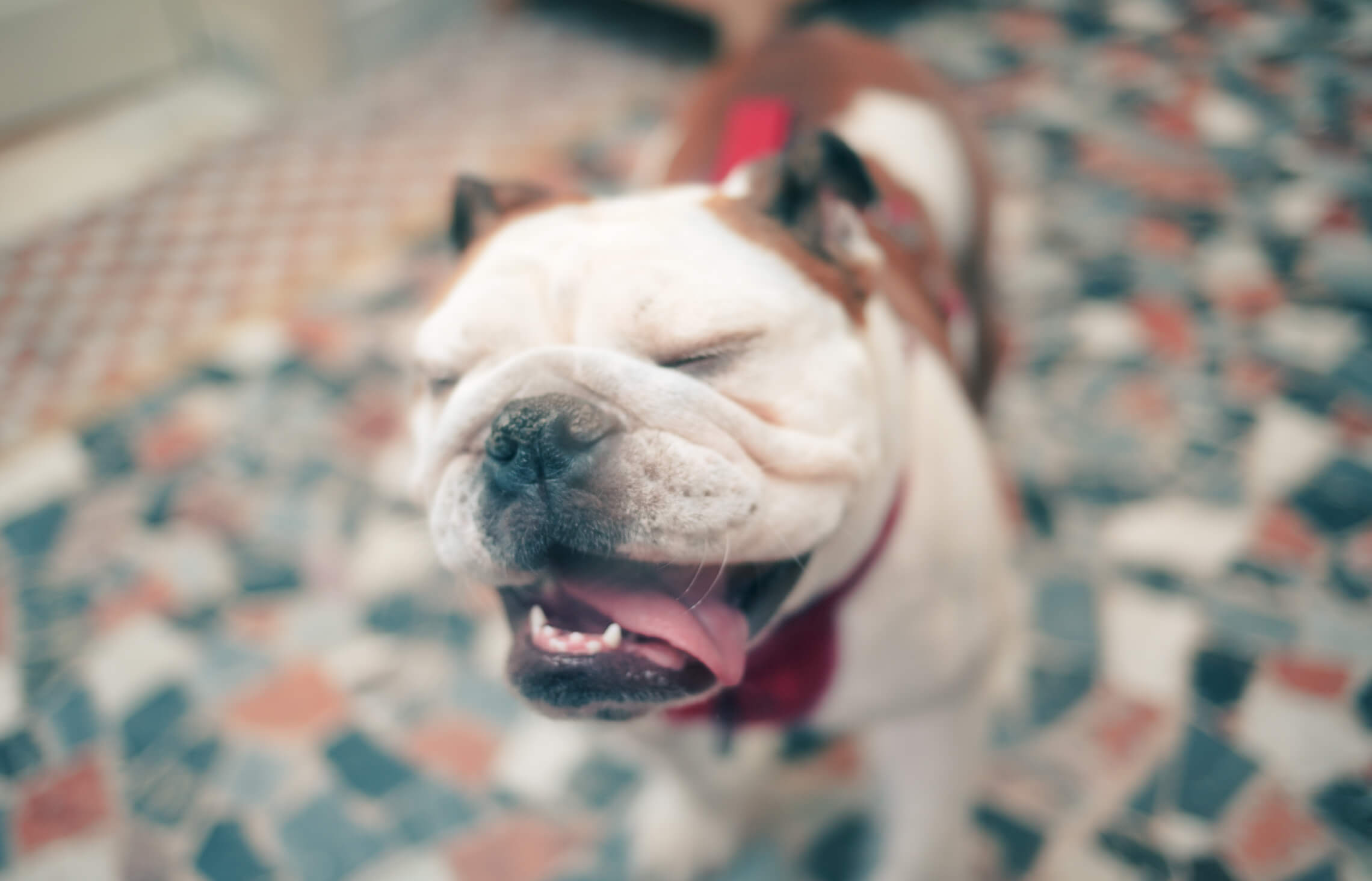
What Can I Do About My Pet's ‘Reverse Sneeze’?
Dog owners—and even some cat owners—have witnessed the moment when silence is suddenly punctuated by a violent snorting noise. The episode would cause alarm for any pet parent, but it ends as quickly as it begins. After a few seconds, your furry friend seems back to normal!
This little quirk has been nicknamed the “reverse sneeze.” Here’s what that actually means and how pet parents can stop it from happening.
What’s a reverse sneeze in dogs and cats?
Despite the name, a reverse sneeze isn’t really a sneeze at all! It actually occurs when there’s irritation near the soft palate—a flap of tissue at the back of the throat that controls airflow. The animal inhales short, sporadic breaths in an attempt to clear away the irritated feeling.
A reverse sneeze will grab your attention right away. They can be quite startling for pet owners who’ve never witnessed them before. That’s because reverse sneezes are typically characterized by slight gagging and a loud snorting noise. The dog or cat will inhale sharply multiple times, often while standing still with an extended head and neck. These episodes sound like a sneeze directed inwards, hence the nickname “reverse sneeze.”
Startling as they might be, reverse sneezes are completely harmless. They’re so mild, no treatments or medication are necessary. However, it’s best to touch base with a veterinarian if your pet reverse sneezes for the first time. A reverse sneeze sounds similar to more serious conditions like choking or a chronic cough.

How to prevent reverse sneezing
Pet parents can’t completely stop reverse sneezes from happening. Much like coughing or regular sneezing, a reverse sneeze is the body’s natural response to irritants in the nose and throat region. Many things can irritate the soft palate like eating and drinking, straining against the leash or simply being overcome with excitement!
Reverse sneezes are very common in dogs but much less frequent in cats. Vet exams and limiting certain environmental factors can reduce the likelihood of this unpleasant experience for your furry companions.
Here’s how to avoid future fits of reverse sneezing:
- Test your pet for allergies: One standalone incident of reverse sneezing is nothing to worry about. On the other hand, recurring episodes could indicate your pet has allergies. A vet can test dogs and cats for environmental allergies, then prescribe an antihistamine to soothe soft palate irritation and minimize reverse sneezing.
- Remove artificial household products: Pets with allergies are sensitive to strong artificial fragrances and chemical household cleaners. These include plug-in air fresheners, perfumes, scented cat litters, candles, fabric softeners and dryer sheets. Swap these common items for unscented ones and use all-natural alternatives to freshen up your home.
- See if foreign objects are present: Some dogs reverse sneeze because there’s a foreign object lodged near the soft palate, like grass or bits of a chew toy. In this case, a vet has to check for any obstructions and remove them. Your vet will perform a rhinoscopy under local anesthesia to determine if anything got stuck in the dog’s throat or nasal cavity. Foreign objects are easily flushed out with saline.
Tricks for stopping a reverse sneeze
If you’ve gone through all the precautions and your pet still launches into reverse sneezing fits, you might still be able to stop the sounds. Here are a few easy tricks that can interrupt your pup mid-sneeze:
- Gently stroke the throat: A gentle massage motion on the throat can encourage your pet to swallow and potentially clear out whatever caused the irritation. Other calming gestures like petting and speaking in a soft voice might also help them snap out of a reverse sneezing frenzy.
- Blow on your pet’s face: This one sounds annoying, but it sure does help! A light breeze on the snout may incite your pet to swallow a few times and interrupt the soft palate muscle spasms. It’s especially helpful for cats and dogs who don’t like being handled while they’re experiencing physical discomfort.
A reverse sneeze won’t hurt your pet, but it’s better for both them and you if you can avoid them altogether. Loud, snorting muscle spasms are unpleasant for everyone involved! Always check with a vet to make sure it’s just a reverse sneeze and nothing more. From there, your vet can recommend further steps if necessary.


